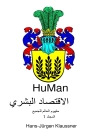The ultimate guide to running a tax-efficient home-based
business
Today, millions of people are making either a full- or part-time
living selling things on Internet auction sites like e Bay. Still
more are making a living selling products from their homes–think
Mary Kay and Avon. If you’re just entering the home-based or online
business arena, you might not be aware of your potential tax
liability.
With J.K. Lasser’s From e Bay to Mary Kay, leading tax consultant
Gary Carter walks you through the challenges of accounting for a
home-based business. Topics covered throughout this comprehensive
guide include:
* Can you deduct the use of your home?
* Are there ways to avoid taxes entirely?
* What types of taxes might you owe?
* How do you account for your inventory?
* What are the rules on collecting sales and use taxes?
The advantages of operating a home-based business are countless,
but many owners don’t realize–and are often unprepared to
handle–the host of complex tax issues surrounding them. J.K.
Lasser’s From e Bay to Mary Kay will show you how to account for
your home-based business and avoid unnecessary tax trouble.
J.K. Lasser–Practical Guides for All Your Financial Needs
Please visit our Web site at www.jklasser.com
Cuprins
Introduction: Before We Get Started.
1 The Lay of the Land.
Legislative, Administrative, and Judicial Authority.
The Audit Process and Your Appeal Rights.
Can I Completely Avoid Paying Income Tax?
Additional Resources.
Notes.
2 What Is a Business for Tax Purposes?
Investing Cannot Be a Business.
Dealing or Trading Could Be a Business.
Rents from Real Estate.
Is It a Hobby or a Business?
Identifying Deductible Business Expenses.
Does It Pay to Be Creative?
Additional Resources.
Notes.
3 Choices for Business Organization.
Sole Proprietorships.
Partnerships.
C Corporations.
S Corporations.
Limited Liability Companies (LLCs).
Which Form Is Best?
Additional Resources.
Notes.
4 Tax Accounting Methods and Periods.
What Is a Method of Accounting?
The Cash Receipts and Disbursements Method.
Accrual Methods.
The Hybrid Method.
Which Method Is Best for You?
Accounting Periods.
Additional Resources.
Notes.
5 How to Account for Inventory.
When Is Inventory Required?
The Accrual Method Requirement.
The Small Taxpayer Exception under Revenue Procedure 2001-10.
The Small Business Exception under Revenue Procedure 2002-28.
Changing Your Accounting Method.
Inventory Methods When the Exceptions Don’t Apply.
Additional Resources.
Notes.
6 Business, Sales, and Use Taxes.
State and Local Business Taxes.
Self-Employment Tax.
Federal Estimated Tax Payments.
Employment Taxes.
General State Taxing Authority for Income Taxes.
General State Taxing Authority for Sales and Use Taxes.
The Streamlined Sales Tax Project.
What to Do before Making Sales.
Additional Resources.
Notes.
7 Limitations on Use of Your Home.
Why Pick on Us?
A Quick Summary of the Restrictions.
Is Your ‘Home’ Where You Think It Is?
Regular Use of a Home Office.
Exclusive Means Exclusive!
What Is Your Principal Place of Business?
A Place to Meet Patients, Clients, or Customers.
The Use of Separate Structures.
Use as Storage Space.
Daycare Services.
Application of Section 280A Business-Use Tests to Partnerships and Corporations.
Employee Expenses.
Additional Resources.
Notes.
8 Form 8829 Line by Line.
Determining the Part of Your Home Used for Business.
Figuring Your Allowable Deduction.
Depreciation of the Business Portion of Your Home.
An Example Using Form 8829 and Form 4562.
Additional Resources.
Notes.
9 Planes, Trains, and (Especially) Automobiles.
Travel Away from Home.
Transportation.
Your Car: Standard Mileage Rate versus Actual Expenses.
How to Report Travel and Transportation Deductions on Your Return.
Additional Resources.
Notes.
10 Other Common Business Deductions.
Who Deducts What, Where?
Depreciation of Personal Property.
Computer Software.
Books, Subscriptions, and Supplies.
Telephone Services.
Meals and Entertainment.
Business Liability Insurance.
Health Insurance and Medical Savings Accounts.
Wages for Home-Office Workers.
Retirement Plans for the Self-Employed.
Additional Resources.
Notes.
11 Sale of Your Residence.
The Sale of a Principal Residence Before and After the Taxpayer Relief Act of 1997.
Reporting Post-Taxpayer Relief Act of 1997 Sales.
Should You Always Claim Home-Office Deductions?
Additional Resources.
Notes.
12 Records You Better Keep.
General Bookkeeping and Substantiation Requirements.
Special Substantiation Requirements.
When Is It Safe to Throw Stuff Away?
Additional Resources.
Notes.
13 A Comprehensive Example.
George’s Business.
The Home Office.
Other Return Items.
Estimated Tax Payments for 2006.
Index.
Despre autor
GARY W. CARTER, PHD, MT, c PA, has more than twenty years of tax experience. He has worked as a revenue auditor and tax practitioner, and is currently on the faculty of the University of Minnesota’s Carlson School of Management. Carter also writes, lectures, has a Web site (www.thetaxguy.com), and conducts seminars on tax issues pertaining to home-based businesses.












